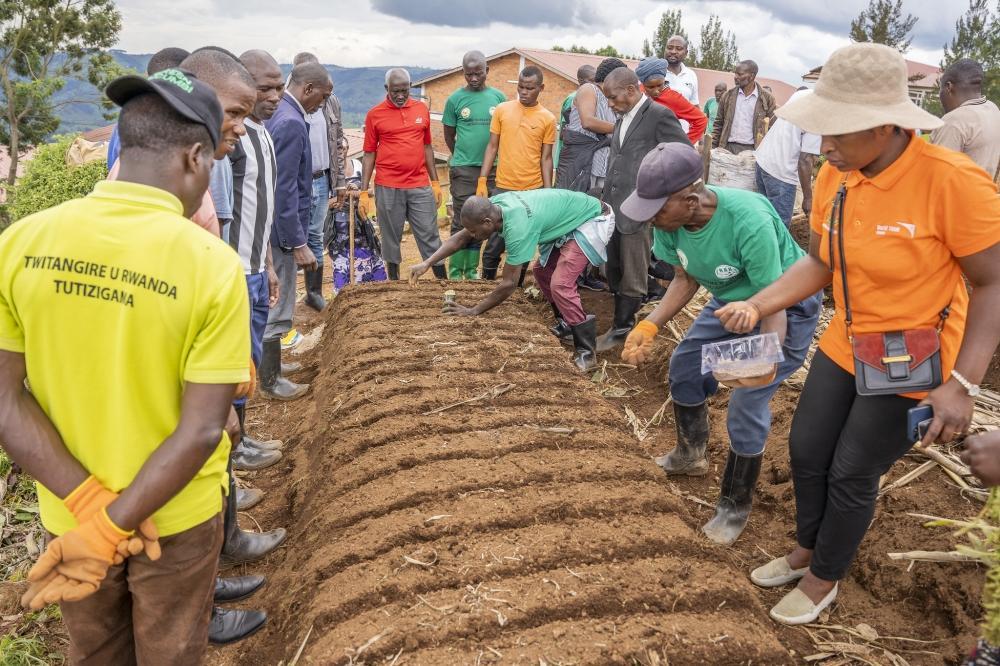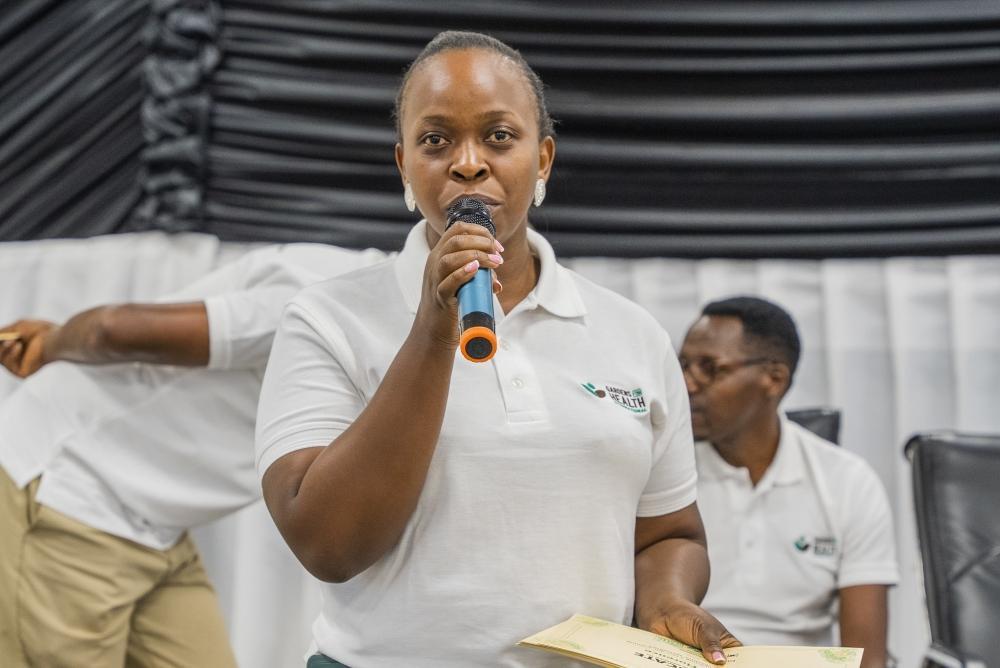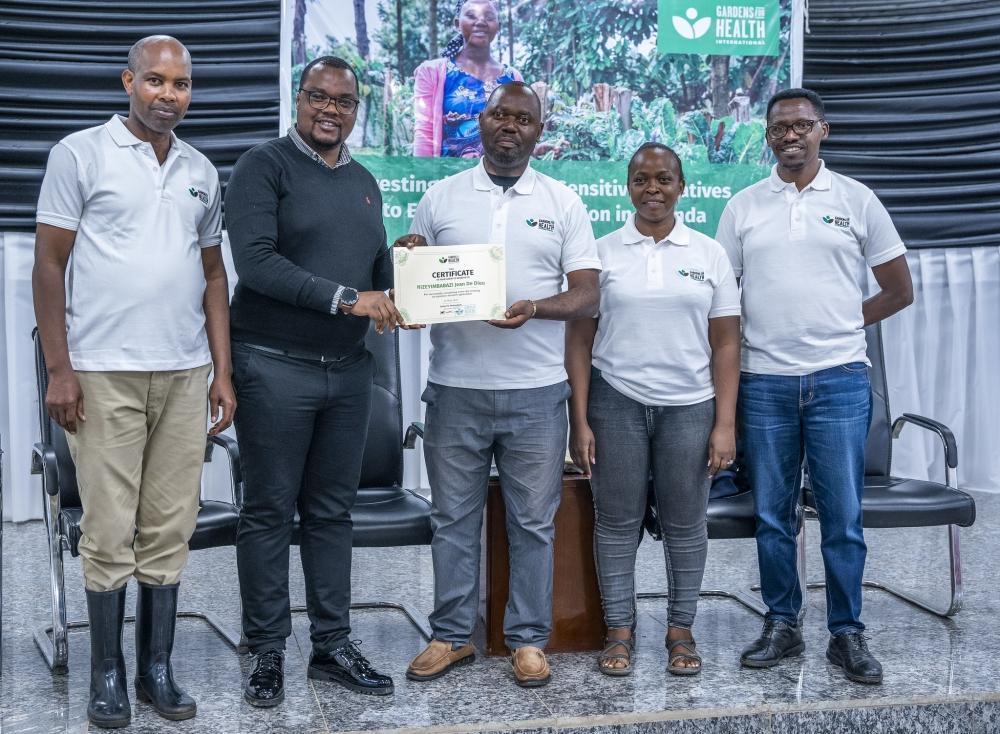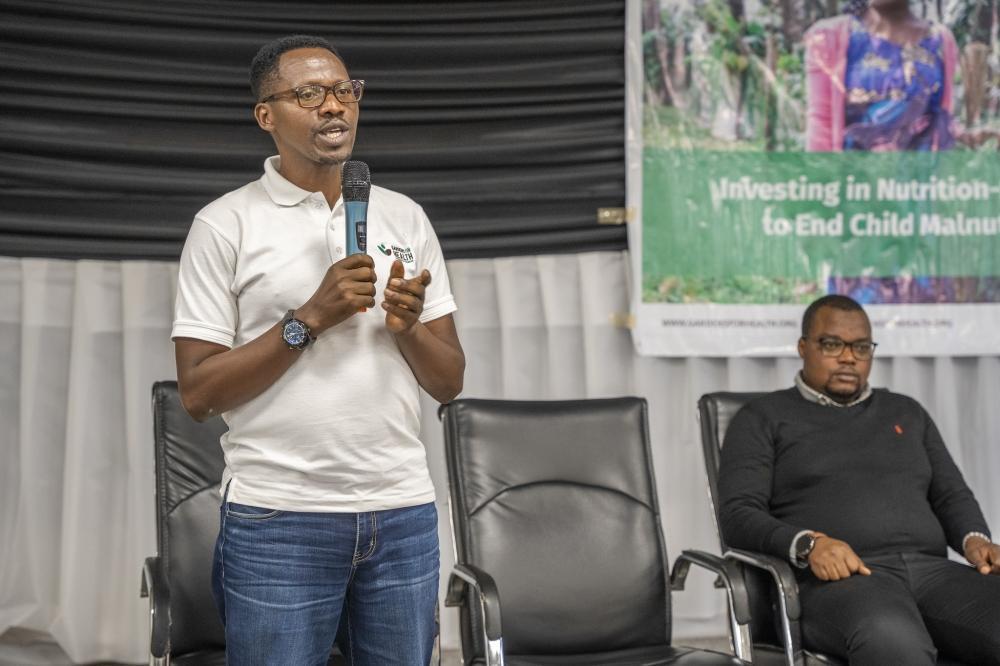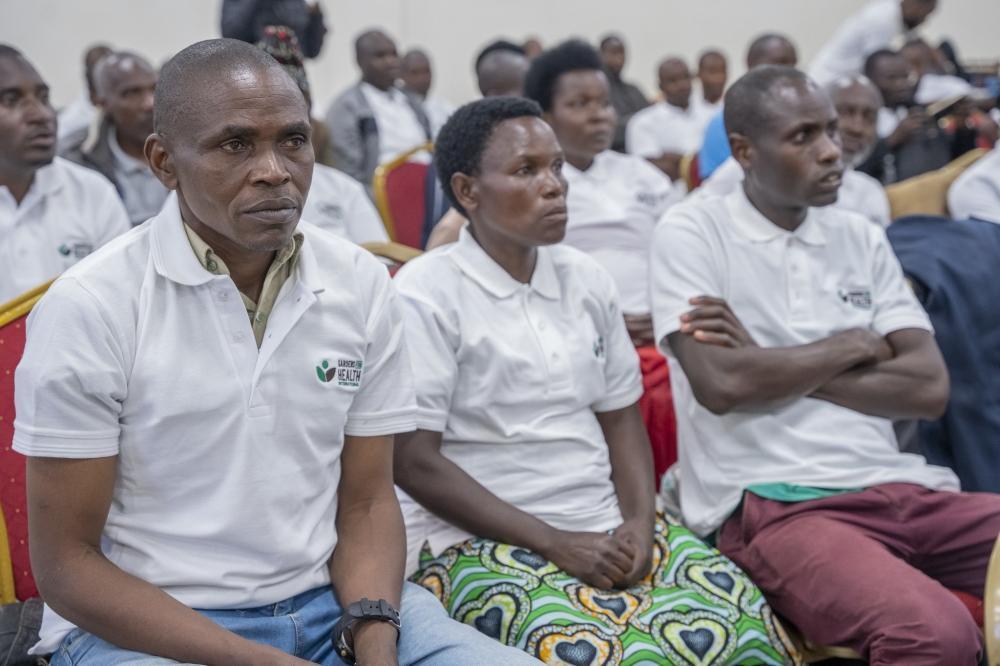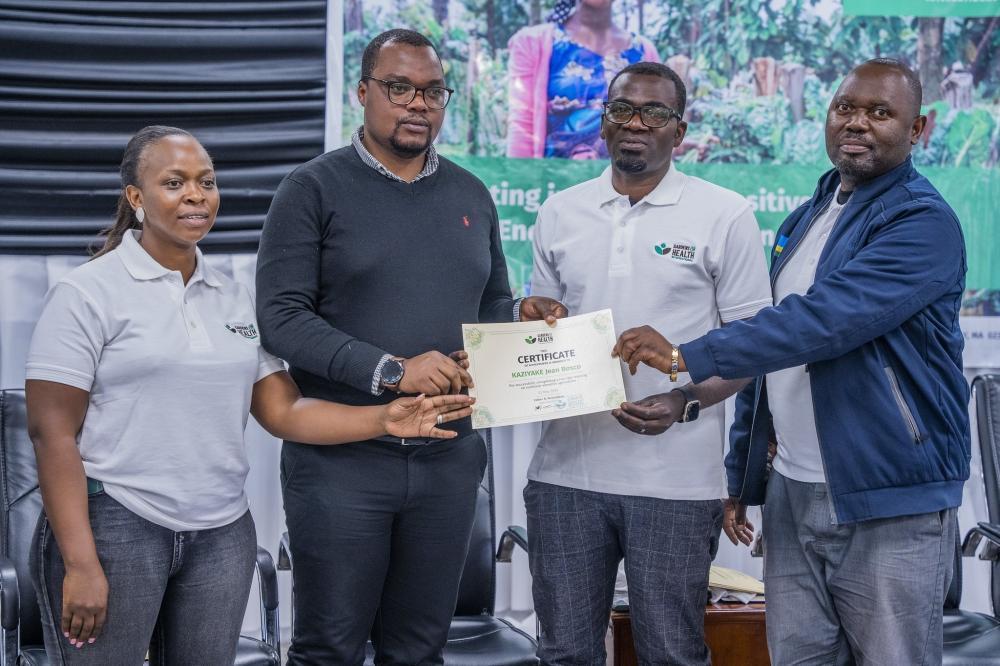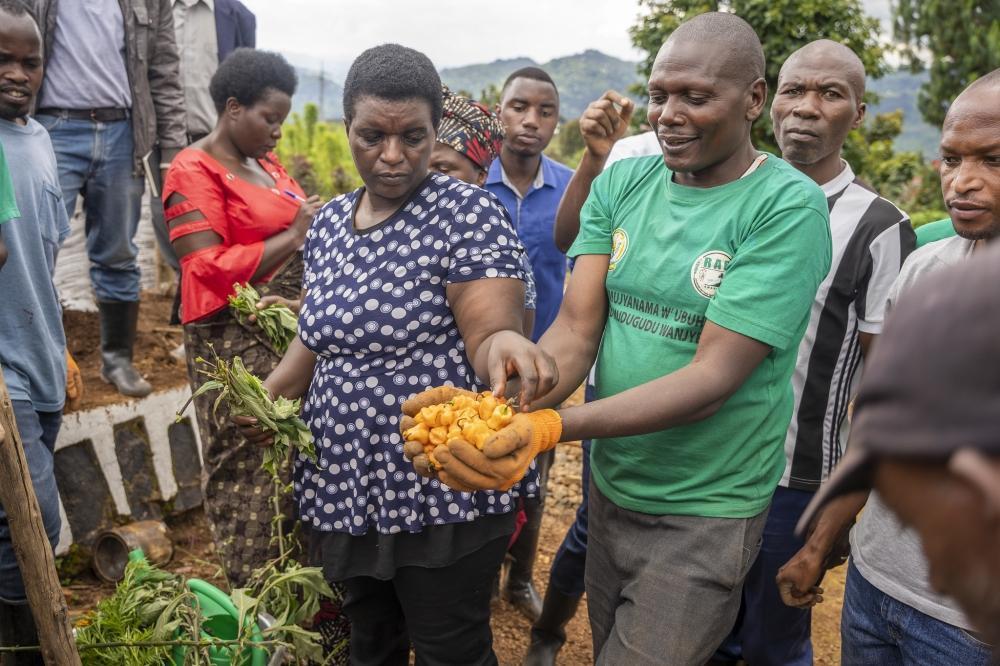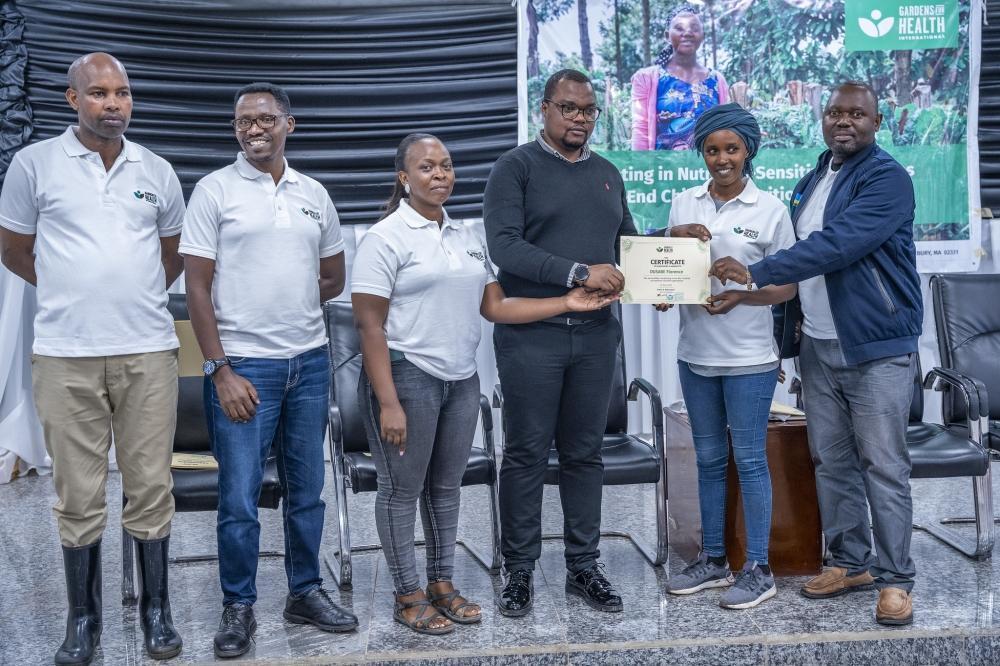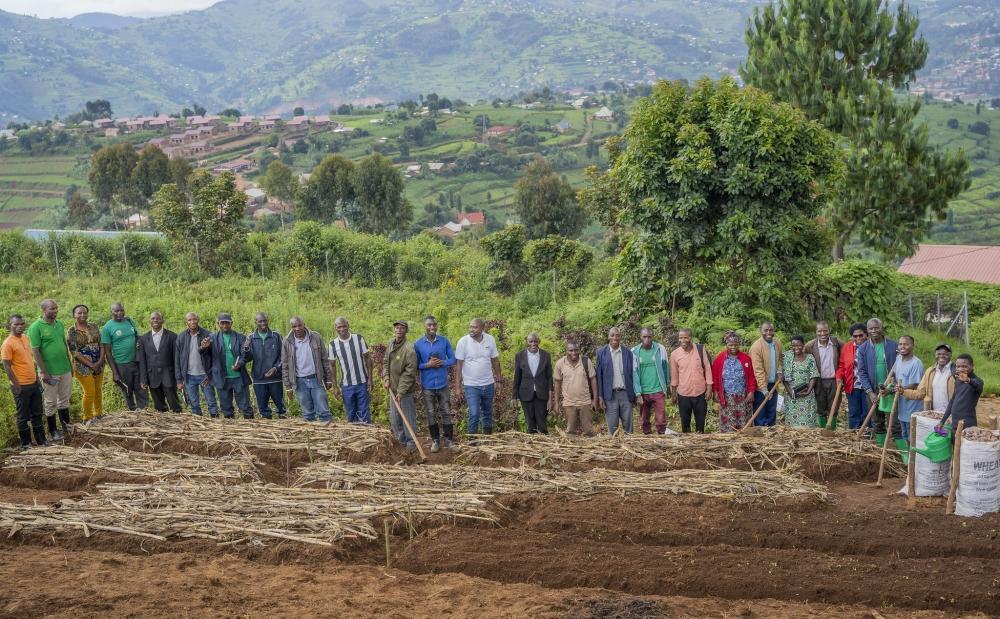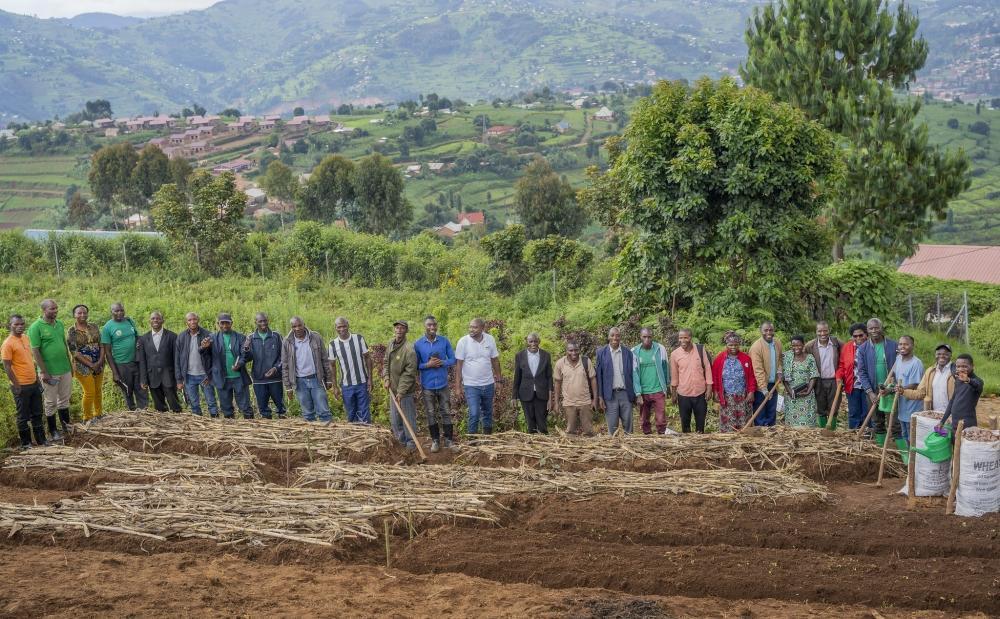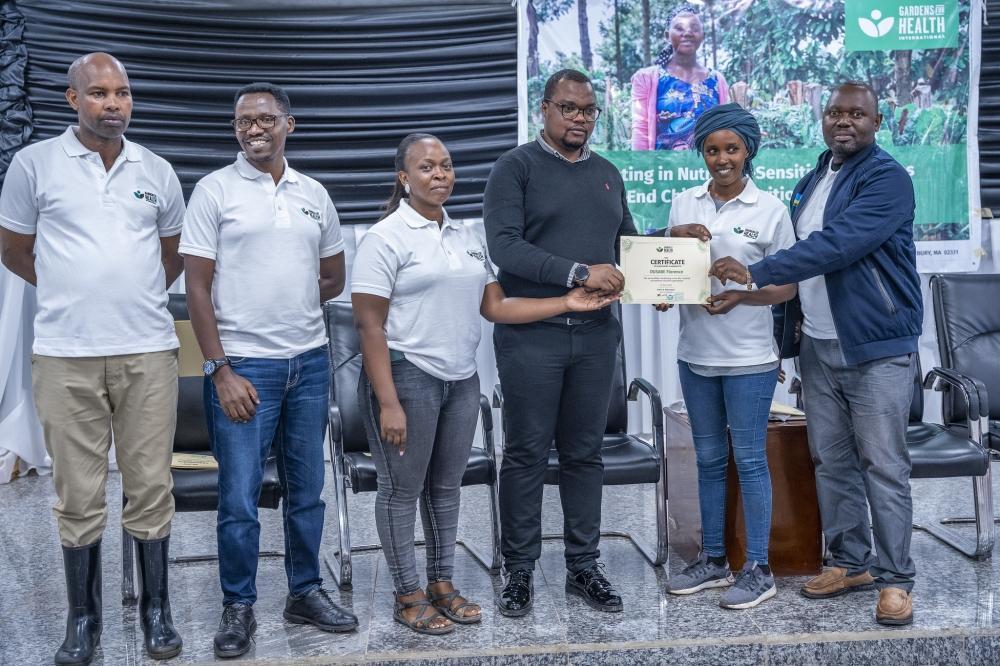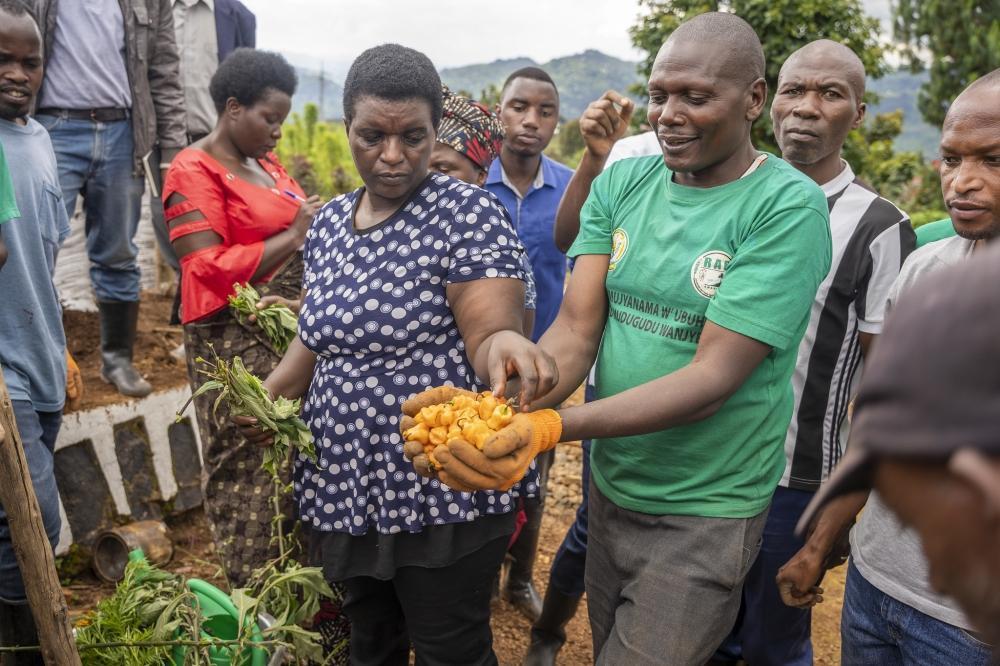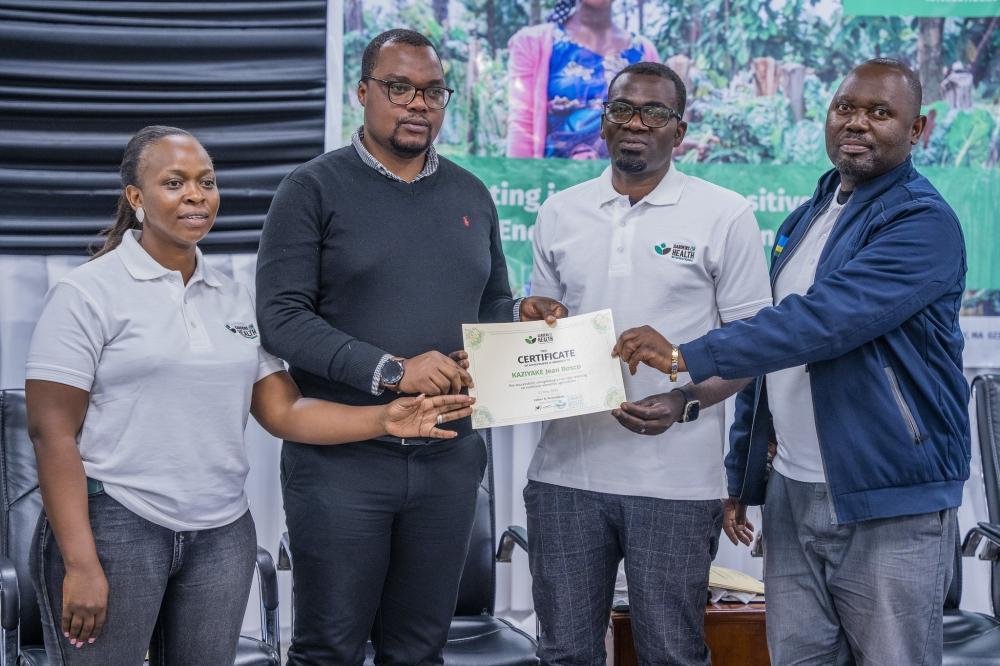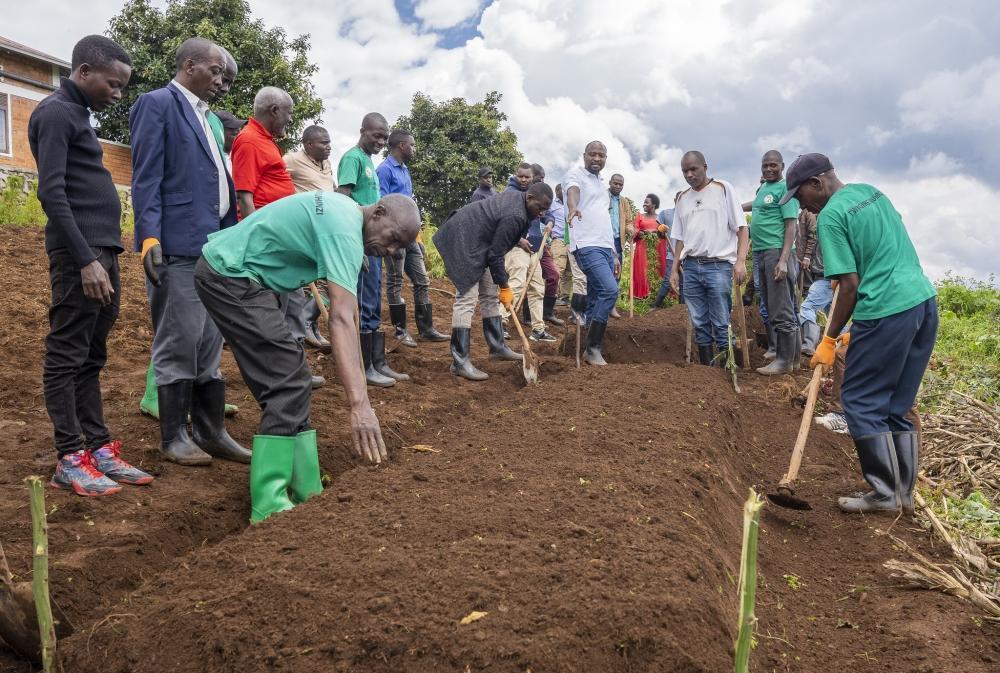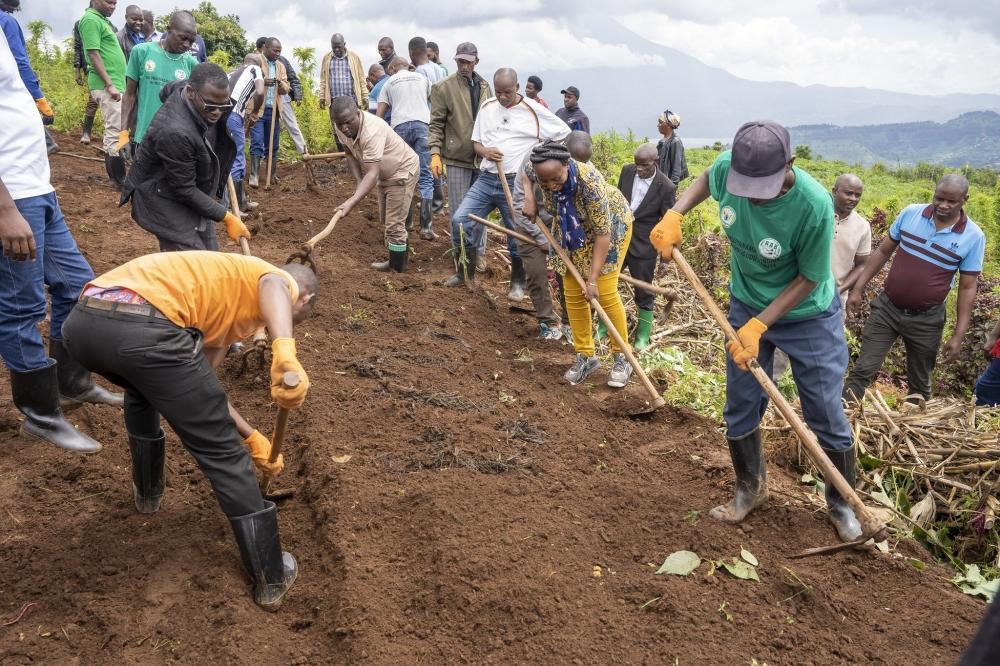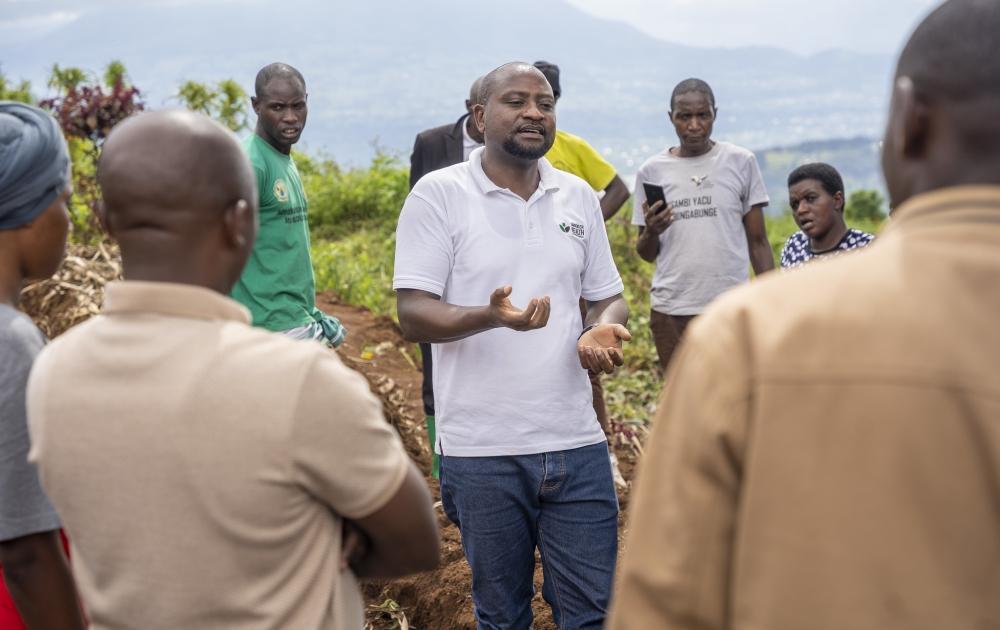Africa-Press – Rwanda. Gardens for Health International, a non-profit organisation focused on addressing malnutrition in Rwanda, has equipped district agriculture officials, sector agronomists, local leaders, and farmer facilitators with practical skills to scale up nutrition-sensitive agriculture as a strategy to combat malnutrition in Burera District.
Nutrition-sensitive agriculture is an approach to farming that focuses on food production, improving the nutritional quality of diets, and promoting better health outcomes.
The theoretical and practical skills in nutrition-sensitive agriculture were delivered during a two-day “light-touch model” training session, held from 21 – 22 May in Burera District.
The innovative curriculum covers agriculture, nutrition, and health topics.
Denyse Niyubahwe, the Agriculture Manager at Gardens for Health International, explained that the initiative aims to empower communities with the knowledge and resources needed to improve both agricultural productivity and nutritional outcomes, while also considering climate impacts.
Denyse Niyubahwe, the Agriculture Manager at Gardens for Health International, speaks during the event to awards certificates to the participant
“It is a scalable, community-driven model that begins with training government officials in the agriculture sector. The trainees include district agriculture officials, sector agronomists, cell leaders, and farmer promoters. These trained individuals will return to their communities and train others to facilitate implementation.
“Nutrition-sensitive agriculture combines farming with nutritional awareness. Historically, farmers have focused on food security—ensuring there is enough food—but we have realised the need to address nutrition security. We must ensure the food is nutritious.” she said.
Nutritious food and climate-smart agriculture
The training also covered improved crop selection.
“We must promote nutrient-dense crops such as high-iron beans, soybean, orange-fleshed sweet potatoes, and a wide variety of vegetables and fruits among others,” Niyubahwe emphasised.
Niyubahwe also noted that communities will adopt climate-smart agriculture techniques to adapt to the effects of climate change, such as drought, land sliding, soil erosion, and flooding. The trainees were taught land preparation methods such as raised beds, double dug beds and container gardens which help retain water during dry seasons and prevent erosion and landslides on steep slopes.
Fifty-six participants received training on choosing nutrient-dense home garden packages, preparing land with climate considerations, nursery establishment, planting and transplanting techniques, crop management within a season, agroforestry and managing post-harvest losses.
These trainees will establish demonstration gardens—known as Farmer Field Schools—in various locations to serve as learning sites where community members will learn best practices and access seeds. These will initially be established at the district and sector levels, and then expand to the cell and village levels.
Why Burera?
Burera District was selected due to its significance as a major food-producing area where malnutrition still persists, said Faustin Katembo, Senior Program Manager at Gardens for Health International.
“The district was chosen because of its high levels of child stunting—41.6% before the project began, and now around 29 per cent. The goal is to bridge the gap between food availability and nutrition. In addition to building efficient garden beds, the community must learn to cook healthy meals using limited resources,” Katembo explained.
The project initially started in four sectors within Burera District, with the goal of expanding to all 17 sectors using the trained personnel.
“We aim to create a sustainable, community-led model that reduces malnutrition, educates communities, builds resilience, and can be replicated in other districts. Gardens for Health International is not merely giving people food or seeds—it’s empowering them with the knowledge and skills to feed themselves nutritiously and sustainably, using the resources they already have.” he added.
Trainee feedback
“We studied both theory and practical. It was my first time having such an experience. I learnt techniques to grow vegetables in beds that can endure even during the dry season. I will replicate the technique in our cell. This will help eradicate malnutrition among children,” said Pontien Bazamanza, a farmer promoter from Kagogo Sector.
“After the training, I will also train other farmers so that food production is aligned with skills to prepare a balanced diet. We learnt how to grow food in a simple way, and it is easy to prepare a balanced diet to combat malnutrition. I also learnt that we can grow vegetables using a small space—even those without large plots of land can do it. We can even grow crops on the walls of houses,” added Emeritha Mukarwego, a farmer promoter from Cyanika Sector.
“Combining agriculture with nutrition promotion programmes is key to eradicating stunting and malnutrition in Burera District. Previously, farmers mainly focused on maize and Irish potatoes, neglecting fruits and vegetables. We will now establish Farmer Field Schools to teach our communities the skills acquired during the training,” Jean Pierre Habaguhirwa, Division Manager in Burera District, shared.
Participants were given certificates of completion
Faustin Katembo, Senior Program Manager at Gardens for Health International addresses farmers
Participants follow Jean Pierre Habaguhirwa, Division Manager in Burera District’s remarks during the eevent in Burera District. Photos by Crais
The project initially started in four sectors within Burera District, with the goal of expanding to all 17 sectors using the trained personnel_
The district was chosen because of its high levels of child stunting—41.6% before the project began, and now around 29 per cent_
For More News And Analysis About Rwanda Follow Africa-Press

